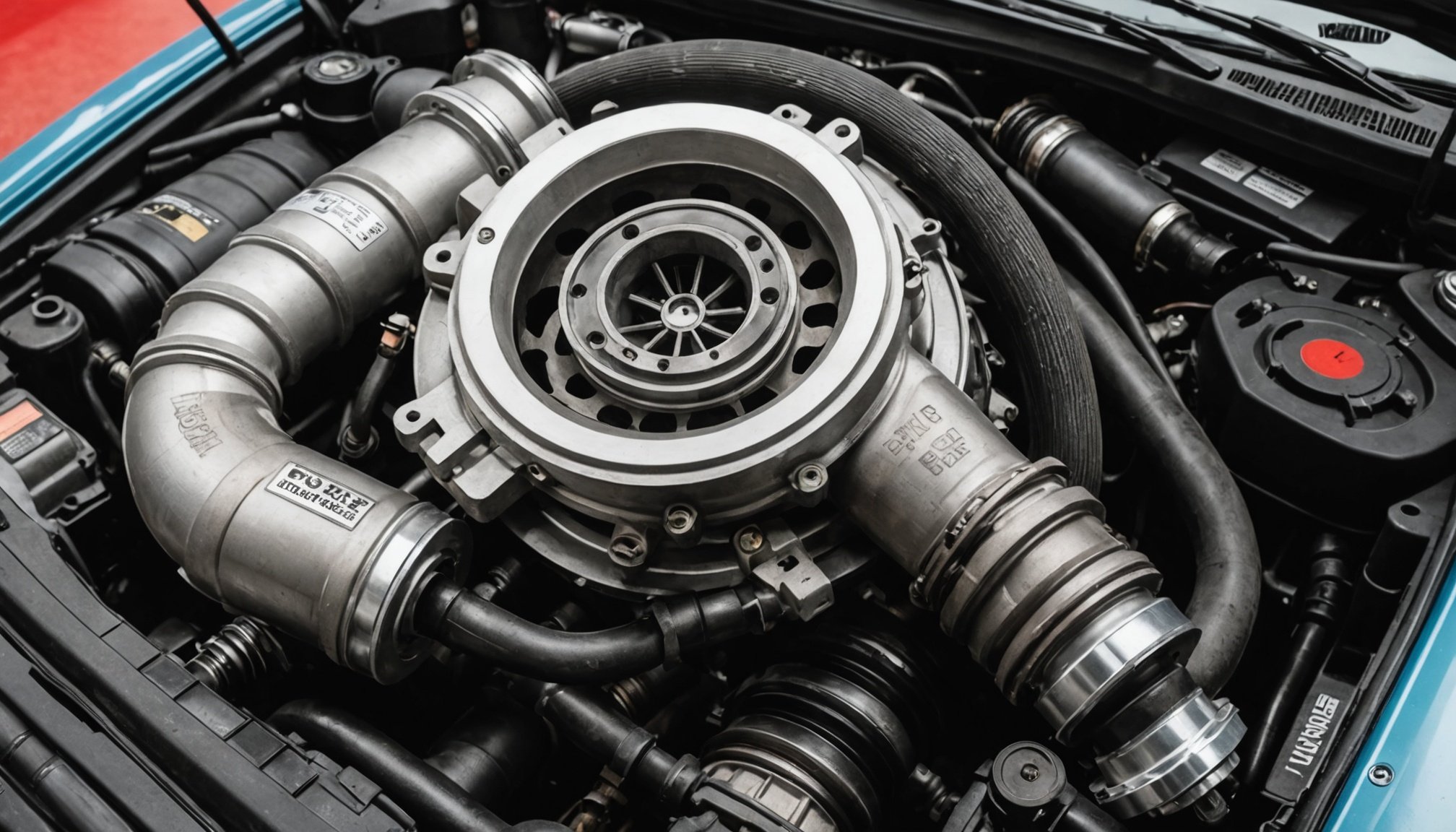Ultimate Guide to Turbocharger Care: Boost Your BMW 335i’s Performance with These Key Maintenance Tips
Understanding Your BMW 335i’s Turbocharger
When it comes to enhancing the performance of your BMW 335i, the turbocharger is a critical component that deserves special attention. Whether you’re running the N54 or N55 engine, proper turbocharger care is essential to maintain and boost your car’s power output.
The Role of the Turbocharger
The turbocharger is a turbine-driven forced induction device that compresses air into the engine’s combustion chamber, allowing for a significant increase in power and efficiency. In the case of the BMW 335i, the turbocharger is integral to the engine’s design, particularly in the N54 and N55 engines, which are known for their high performance capabilities.
Additional reading : Mastering mclaren 720s: your comprehensive handbook for installing and tuning a performance data logger to unlock exceptional track insights
Common Issues with Turbochargers
Turbochargers, like any other mechanical component, can suffer from wear and tear over time. Common issues include turbo lag, reduced boost pressure, and in severe cases, turbo failure. These problems can often be traced back to inadequate maintenance, poor driving habits, or the use of low-quality fuel.
Regular Maintenance Tips for Your Turbocharger
To keep your turbocharger in top condition and ensure your BMW 335i continues to deliver high performance, here are some key maintenance tips:
Also to discover : Ultimate guide to installing and optimizing your performance boost controller for mitsubishi lancer evo: a complete step-by-step approach
Oil Change and Quality
- Frequency: Regular oil changes are crucial. It is recommended to change your engine oil every 5,000 to 7,500 miles, depending on your driving conditions.
- Quality: Use high-quality synthetic oil that is specifically designed for turbocharged engines. Synthetic oil provides better lubrication and heat dissipation, which are vital for turbocharger longevity.
- Example: For a BMW 335i, you might consider using oil like the BMW High Performance Synthetic Oil or similar products from reputable manufacturers.
Coolant and Water Pump Maintenance
- Coolant Check: Ensure your coolant levels are always at the recommended level. Low coolant levels can lead to overheating, which is detrimental to your turbocharger.
- Water Pump Replacement: The water pump should be replaced every 50,000 to 70,000 miles. A failing water pump can cause overheating and damage to your turbocharger.
- Quote: “A well-maintained cooling system is essential for the health of your turbocharger. Neglecting this can lead to costly repairs down the line,” says a BMW mechanic.
Air Intake and Filter Maintenance
- Air Filter: Change your air filter every 15,000 to 30,000 miles. A dirty air filter can reduce airflow, leading to decreased performance and increased stress on the turbocharger.
- High-Performance Intake: Consider upgrading to a high-performance air intake system. These systems are designed to provide better airflow and can enhance your car’s performance.
- Example: The AFE Power Momentum GT Cold Air Intake is a popular choice among BMW enthusiasts for its ability to increase horsepower and torque.
Fuel Quality
- High-Octane Fuel: Use high-octane fuel to ensure your engine runs smoothly and efficiently. Lower octane fuel can cause engine knock or pinging, which can damage your turbocharger over time.
- Fuel Additives: Avoid using fuel additives that claim to clean your engine or turbocharger. These can often do more harm than good. Instead, stick to high-quality fuel from reputable sources.
Advanced Maintenance and Mods for High Performance
For those looking to push their BMW 335i to the next level, here are some advanced maintenance tips and mods:
Tuning Your Engine
- Tuning Software: Use reputable tuning software like MHD or JB4 to optimize your engine’s performance. These software solutions can adjust parameters such as boost pressure, fuel injection, and ignition timing to maximize power output.
- Example: The MHD Flasher is a popular choice among BMW enthusiasts for its ease of use and comprehensive tuning options[3].
Upgrading Your Turbocharger
- Turbo Upgrade Kits: Consider upgrading to a high-performance turbocharger kit. These kits, such as the CTS Turbo F-series BMW N55 BOSS Turbo Upgrade kit, can significantly increase your car’s power output[2].
- Charge Pipe and Downpipes: Upgrading your charge pipe and downpipes can also improve airflow and reduce backpressure, leading to better performance.
Detailed Maintenance Checklist
Here is a detailed checklist to help you keep your turbocharger in top condition:
- Every 5,000 to 7,500 miles:
- Change engine oil
- Check coolant levels
- Inspect air filter
- Every 15,000 to 30,000 miles:
- Change air filter
- Check and replace spark plugs
- Every 50,000 to 70,000 miles:
- Replace water pump
- Inspect and replace drive belts
- Annually:
- Inspect turbocharger for signs of wear or damage
- Check and clean the intercooler
Table: Comparison of Maintenance Costs
| Maintenance Task | Frequency | Estimated Cost |
|---|---|---|
| Oil Change | Every 5,000-7,500 miles | $100-$200 |
| Coolant Check | Every 5,000-7,500 miles | Free-$50 |
| Air Filter Change | Every 15,000-30,000 miles | $50-$100 |
| Water Pump Replacement | Every 50,000-70,000 miles | $500-$1,000 |
| Turbocharger Inspection | Annually | $100-$300 |
| High-Performance Intake Upgrade | One-time | $500-$1,500 |
| Turbo Upgrade Kit | One-time | $2,000-$3,000 |
Real-Life Examples and Anecdotes
The Importance of Regular Oil Changes
A BMW enthusiast shared his experience on a forum: “I once neglected to change my oil for over 10,000 miles, and it led to premature wear on my turbocharger. After switching to regular oil changes, I noticed a significant improvement in my car’s performance and reliability.”
The Benefits of High-Performance Mods
Another enthusiast who upgraded his BMW 335i with a single turbo kit noted: “The difference was night and day. My car went from producing around 300 horsepower to over 500 horsepower. It was well worth the investment in terms of both performance and the joy of driving.”
Taking care of your BMW 335i’s turbocharger is a multifaceted task that requires regular maintenance, the right fuel, and occasional upgrades. By following these tips and staying committed to your car’s health, you can ensure that your vehicle continues to deliver the high performance you expect from a BMW.
Remember, a well-maintained turbocharger is not just about performance; it’s also about extending the lifespan of your engine and avoiding costly repairs down the line. Whether you’re a seasoned mechanic or a DIY enthusiast, these tips will help you keep your BMW 335i running at its best.











